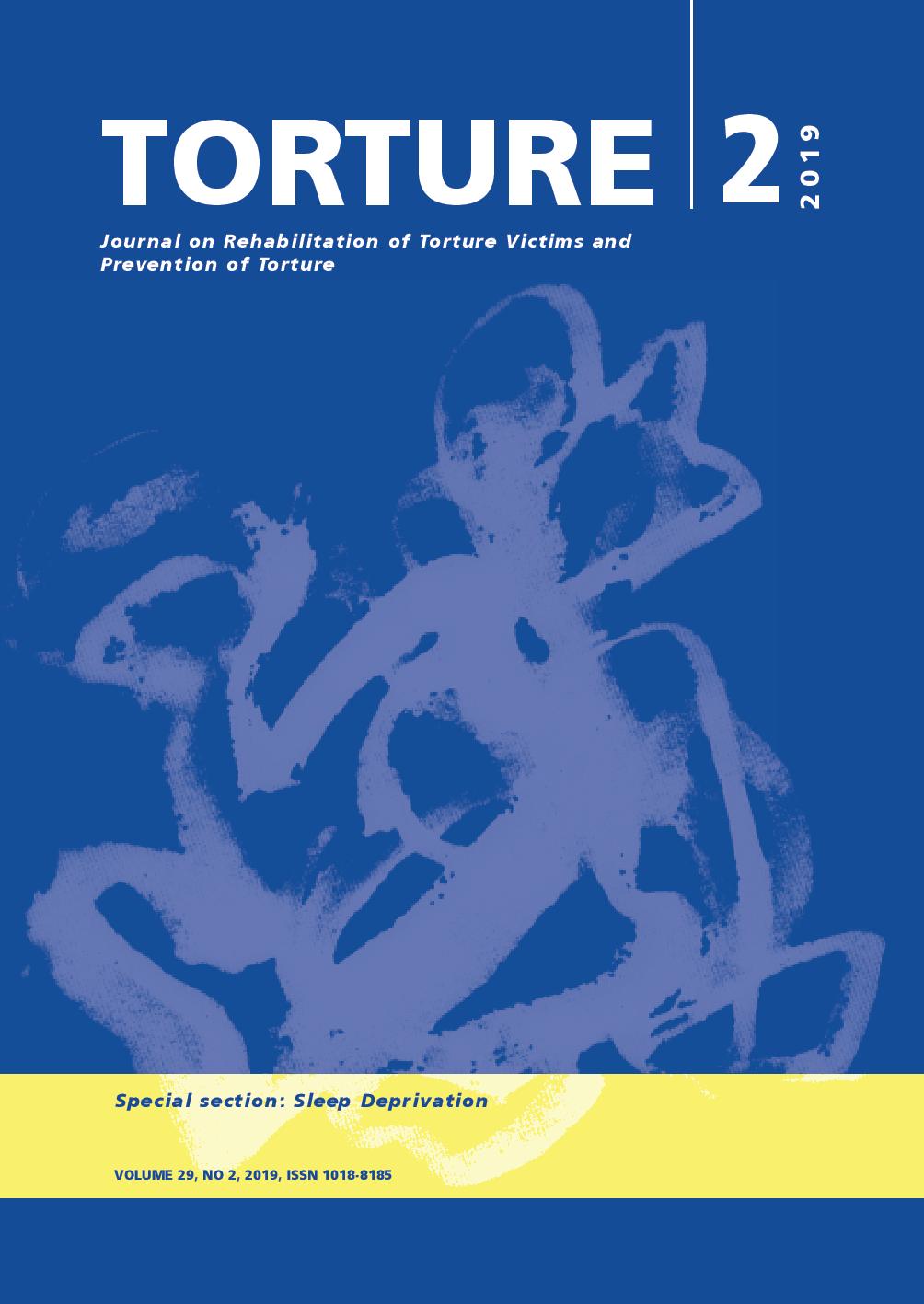How do you say Istanbul Protocol in Hebrew? The curious case of Mr Firas Tbeish
DOI:
https://doi.org/10.7146/torture.v29i2.114967Keywords:
Istanbul Protocol, Israel, High Court of Justice, Firas TbeishAbstract
On 26 of November 2018, Israel’s High Court of Justice decided that Mr Firas Tbeish, a Palestinian from the Hebron area in the West Bank, had not been tortured. This concluded of six-year legal battle undertaken by Mr Tbeish and the Public Committee Against Torture in Israel. The case summary outlines the context in which the decision was given, while paying particular attention to the (mis)conception of Istanbul Protocol reports in Israel’s legal system.
References
Bergman-Sapir, E. (2016, Nov. 15) A Veil over Torture: Israel’s “Necessity Defense”, OMCT. Retrieved from http://blog.omct.org/veil-torture-israels-necessity-defense/
B’Tselem: The Israeli Information Center for Human Rights in the Occupied Territories (2019, August 12) Statistics on Administrative Detention. Retrieved from https://www.btselem.org/administrative_detention/statistics
Chachko, E. (2018, Dec. 6) Tabish v. Attorney General and the Legal Framework Governing Physical Coercion in ISA Interrogations, Lawfare. Retrieved from https://www.lawfareblog.com/tabish-v-attorney-general-and-legal-framework-governing-physical-coercion-isa-interrogations
Kremnitzer, M. & Shani, Y. (2018) The Absolute Prohibition of Torture and CIDT: A Dream or Reality – Israeli Law and Special Interrogation Techniques. Retrieved from https://idclawreview.files.wordpress.com/2018/12/KremnitzerShany.pdf (In Hebrew)
Luban, H. (2006) Liberalism, Torture, and the Ticking Bomb, VA. L. Rev., 91, 1425-1461. doi:10.1007/978-1-4020-4678-0_15
Shue, H. (2006) Torture in Dreamland: Disposing of the Ticking Bomb, Case W. Res. J. Int'l L., 37(2), 231-239
Sussman, D. (2005) What's Wrong with Torture? Philosophy and Public Affairs, 33 (1), 1-33
The Ciechanover Commission (Team for the Review and Implementation of the Second Report of the Public Commission for the Examination of the Maritime Incident of May 31st 2010 Regarding Israel's Mechanisms for Examining and Investigating Complaints and Claims of Violations of the Law of Armed Conflict According to International Law) (2015) Report. Retrieved from: http://www.pmo.gov.il/Documents/ReportEng.pdf
The Turkel Commission (The Public Commission to Examine the Maritime Incident of 31 May 2010) (2013) – Second Report: Israel’s Mechanisms for Examining and Investigating Complaints and Claims of Violations of the Laws of Armed Conflict According to International Law. Retrieved from: https://www.gov.il/BlobFolder/generalpage/alternatefiles/he/turkel_eng_b1-474_0.pdf
UN Committee Against Torture (CAT) (2016) Concluding observations on the fifth periodic report of Israel, CAT/C/ISR/CO/5. Retrieved from https://tbinternet.ohchr.org/_layouts/15/treatybodyexternal/Download.aspx?symbolno=CAT/C/ISR/CO/5&Lang=En
UN Office of the High Commissioner for Human Rights (OHCHR) (2004) Manual on the Effective Investigation and Documentation of Torture and Other Cruel, Inhuman or Degrading Treatment or Punishment ("Istanbul Protocol"), HR/P/PT/8/Rev.1. Retrieved from https://www.ohchr.org/Documents/Publications/training8Rev1en.pdf
Cases:
As’ad Abu Gosh et al. v the Attorney General et al., HCJ 5722/12 (2017). Retrieved from http://stoptorture.org.il/wp-content/uploads/2017/02/English-Translation-of-Abu-Ghosh-Judgment.-DRAFT.odt.pdf
Firas Tbeish et al. v the Attorney General et al., HCJ 9018/17 (2018). Retrieved from http://stoptorture.org.il/wp-content/uploads/2017/02/F.-Tbeish-Ruling-Nov.-2018.ENG_.pdf
Public Committee Against Torture v State of Israel, HCJ 5100/94 (1999). Retrieved from https://supremedecisions.court.gov.il/Home/Download?path=EnglishVerdicts94
Downloads
Published
How to Cite
Issue
Section
License
We accept that some authors (e.g. government employees in some countries) are unable to transfer copyright. The Creative Commons Licence Attribution-NonCommercial-NoDerivatives 4.0 International (CC BY-NC-ND 4.0) covers both the Torture Journal and the IRCT web site. The publisher will not put any limitation on the personal freedom of the author to use material contained in the paper in other works which may be published, provided that acknowledgement is made to the original place of publication.


